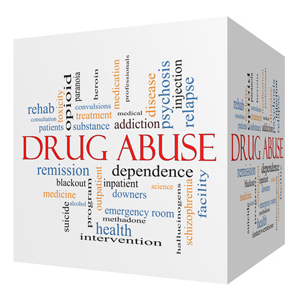If you follow the scientific method, you collect the evidence that exists -- you gather and inspect data -- and test your hypothesis. Compare this to wild assertions, based on nothing but emotion.
Nowhere is the analysis of information more urgent, and nowhere is the use of this material more revealing, than in the treatment of alcohol and drug addiction.
I prefer, therefore, to proceed in reverse order by stating my conclusion first.
Not every addiction requires the same treatment, and not every patient with the same addiction will recover by receiving the same treatment. Customized care means that the director of a credible drug treatment facility -- and by "credible," I refer not only to the longevity of an expert's career, but the success rates and specialized approach an expert applies on behalf of each patient -- will recognize the following:
There are different addictions that are more or less prevalent in specific communities, for reasons of economics, race, gender and sexual orientation, which demand our immediate attention.
Take, for instance, addiction among lesbian, gay, bisexual and transgender (LGBT) individuals. According to the U.S. Centers for Disease Control & Prevention (CDC), members of this community are, in comparison to heterosexuals, more likely to use alcohol and drugs, have higher rates of substance abuse, are less likely to abstain from alcohol and drug use, and are more likely to continue heavy drinking longer.
Of equal concern is the prevalence of addiction to methamphetamine, or crystal meth, which, based on this piece of reportage ("The Beast in the Bathhouse; Crystal Meth Use by Gay Men Threatens to Reignite an Epidemic") from the New York Times from January 12, 2004 -- a prescient warning from the past -- is much worse today.
The past is, indeed, prologue when you review statistics about meth addiction from the Substance Abuse and Mental Health Services Administration (SAMHSA). Their study, conducted during the same year in which the piece in the Times ran, finds that:
- An estimated 12 million persons aged 12 and older (4.9 percent of US persons aged 12 or older) had used methamphetamine at least once in their lifetime.
Among a survey of urban, young men who have sex with men (MSM), included with the SAMHSA study, 20 percent of the participants reported having used methamphetamine during the past 6 months.
As a scientist, these statistics -- and many others from both the CDC and the Center for American Progress ("Why the Gay and Transgender Population Experiences Higher Rates of Substance Use") -- confirm that the type and frequency of addiction varies within particular communities.
In turn, my natural inclination is to understand how to treat this addiction (or series of addictions) for the good of LGBT patients nationwide.
According to Manny Rodriguez, founder and executive director of La Fuente Hollywood Treatment Center:
"The numbers [about addiction among LGBT individuals] speak for themselves. If you dissect the statistics, as I have, you soon realize that there are socioeconomic factors that disproportionately affect the LGBT community. Those variables present specific challenges -- and demand specialized treatment -- that only certain facilities can address."
Manny further explains that, unlike the treatment protocol for other chronic diseases like heart disease, diabetes, and high blood pressure, in-depth knowledge of LGBT issues makes a significant difference in patient outcomes.
He says:
"Customized care within the world of alcohol and drug addiction involves much more than a good bedside manner. If a treatment center is not conversant in the individual needs of LGBT patients, then generic approaches to addiction -- treatment planning that ignores the personal dynamic between a heterosexual methamphetamine user and a gay or lesbian addict of the same drug -- will have a much higher incidence of failure."
"You need to know the interplay between the drug and the patient, or the forces between the addiction and the addict. Methamphetamine addiction in almost every case I see is accompanied with sexual experiences that are compulsive and high risk for men having sex with men. Safety in a treatment setting to process and discuss a patient's past without fear of judgment or having to edit is a paramount in helping them develop the tools necessary for long-term recovery."
Those words resonate with me because, to return to my formal training as a scientist, information reveals as much as it conceals. To uncover the latter, we need to ask questions -- a lot of them -- to get the answers patients and treatment centers want.
For the LGBT community, and for those dedicated to helping this constituency, now is the time to seize a new beginning of improved health and wellness.
Need help with substance abuse or mental health issues? In the U.S., call 800-662-HELP (4357) for the SAMHSA National Helpline.
